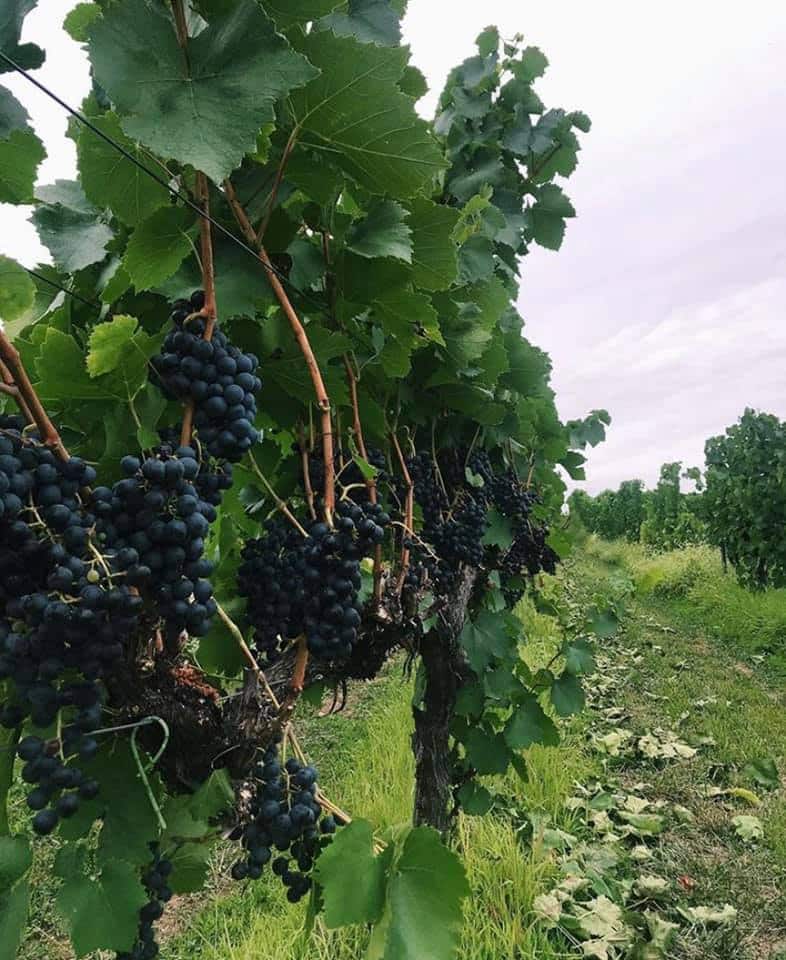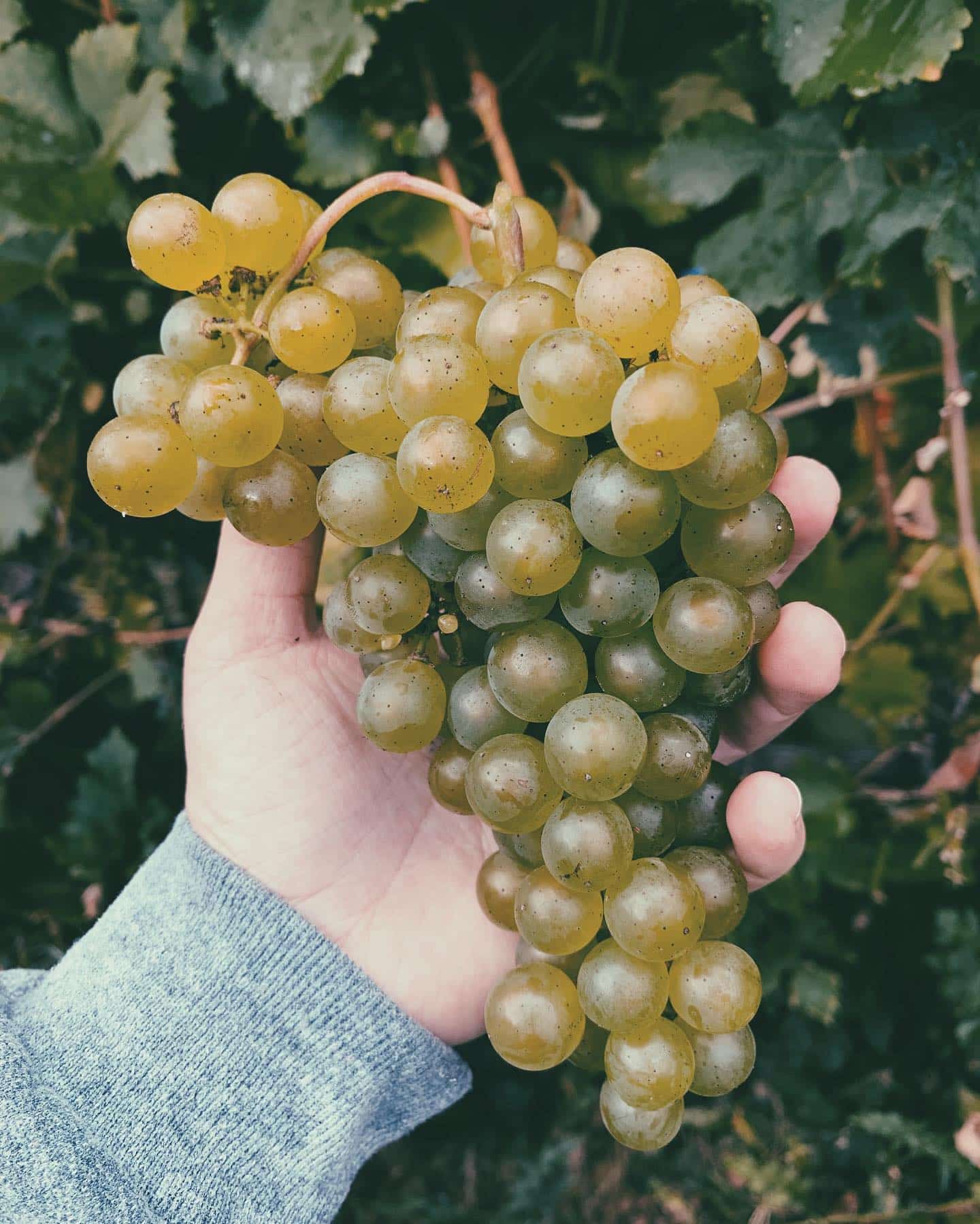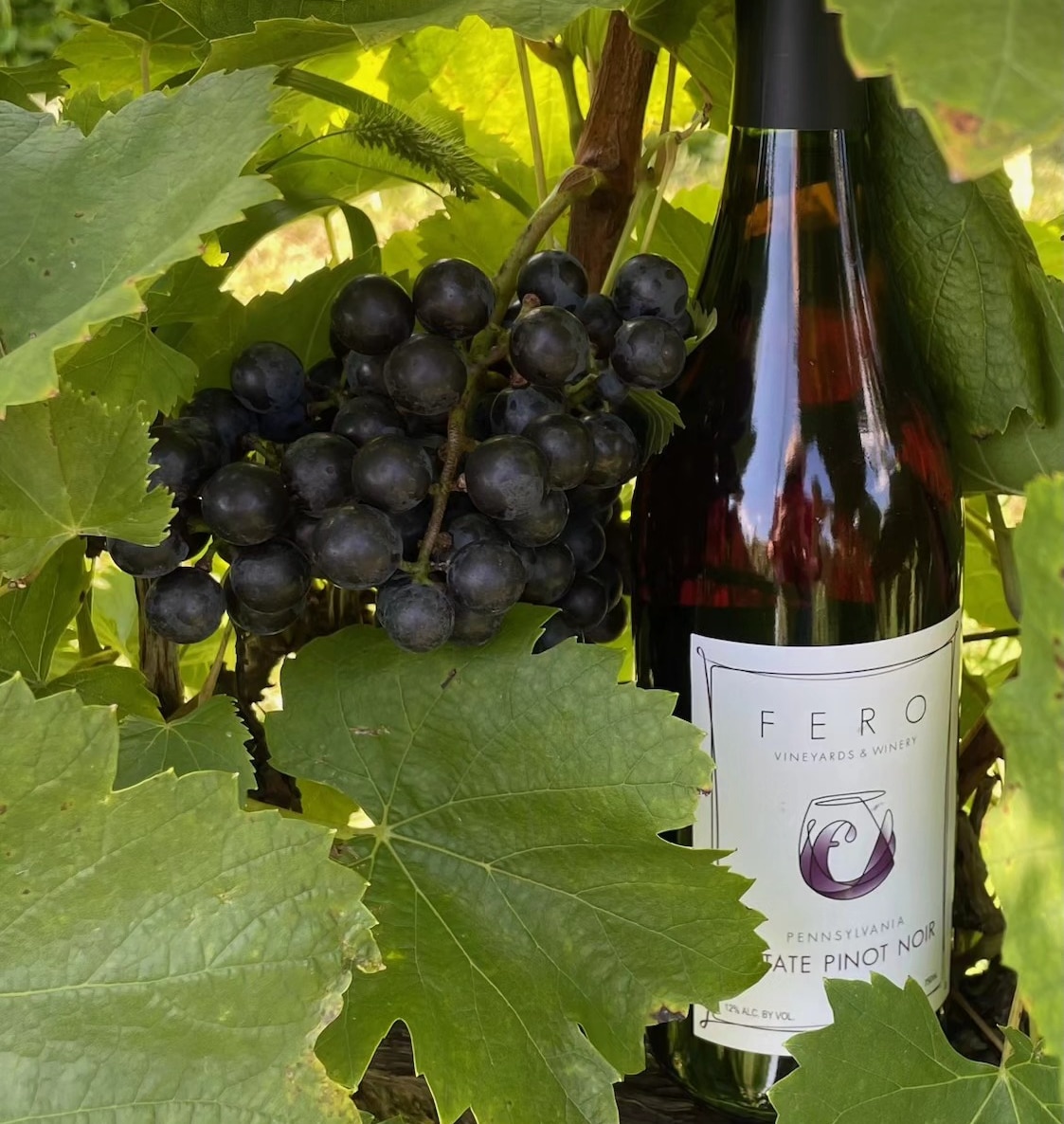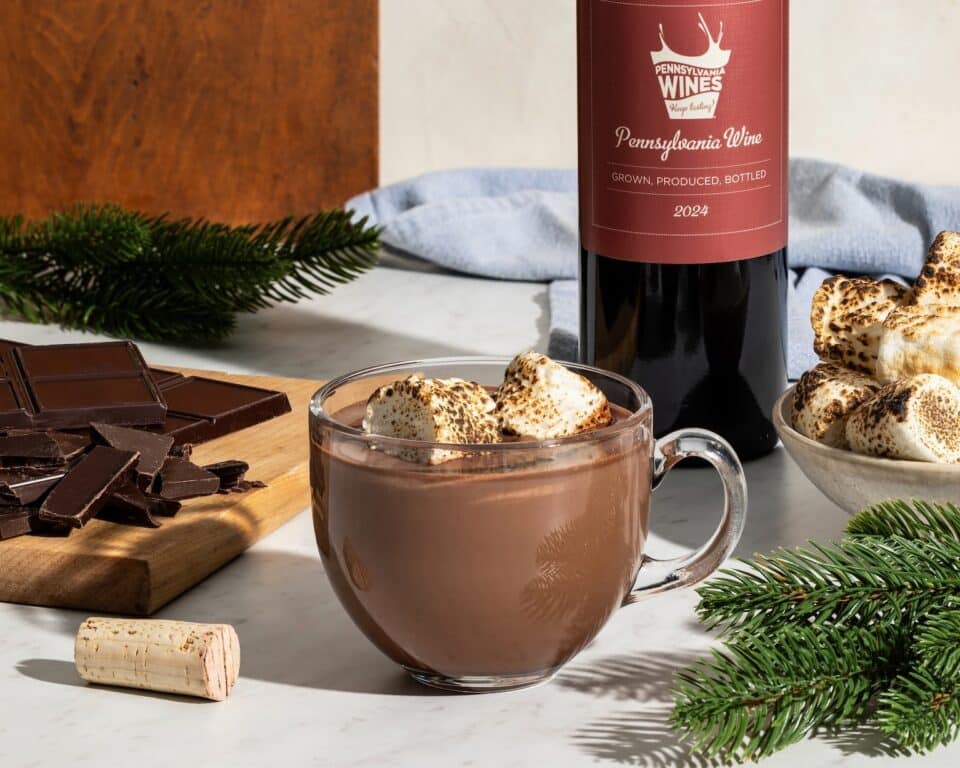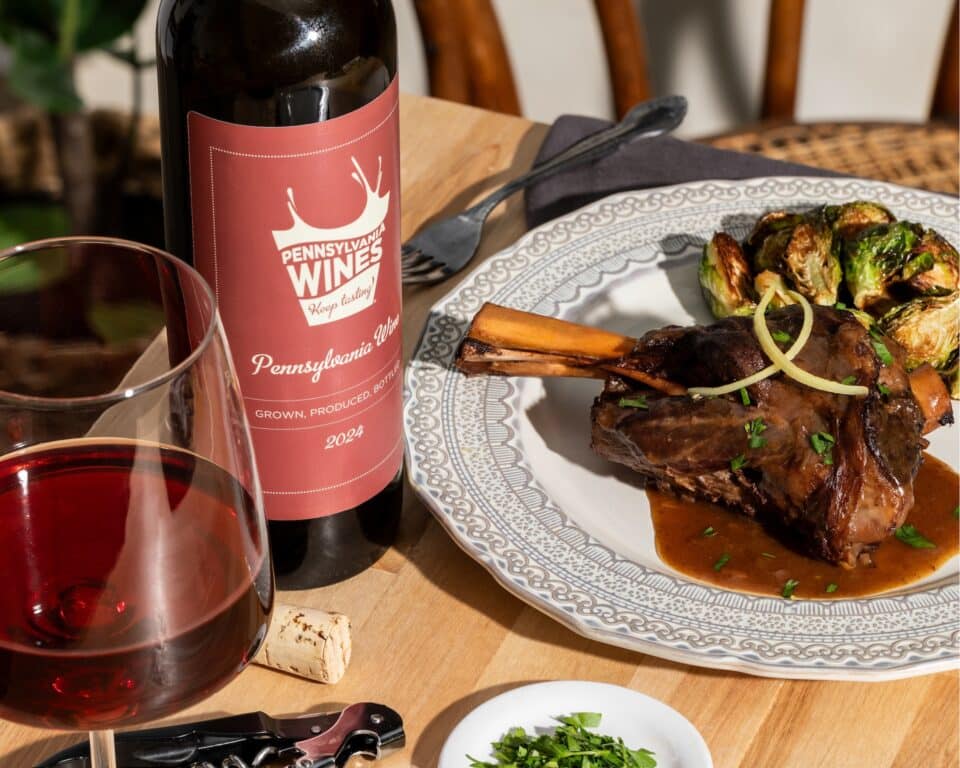There is a phrase in wine that goes, “Struggling vines make great wines.”
The general notion is that when grape vines have everything they need to be happy, like plenty of water and a temperate climate, the plant uses its energy to grow more leaves and shoots. However, when the vines suffer, they send their energy to the grapes, increasing the sugar content of the fruit which makes more flavorful wine.
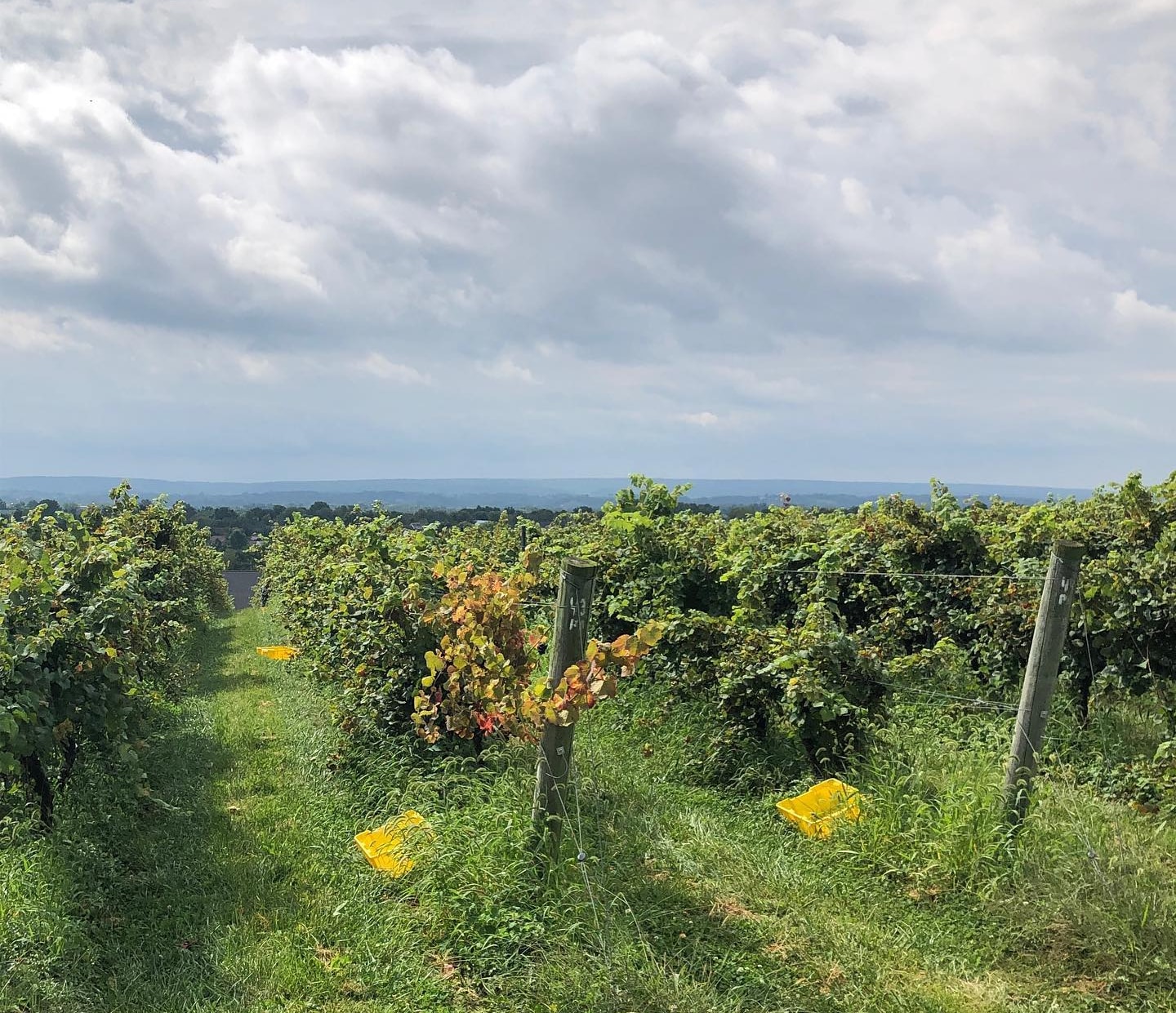
Though this idea is oft-argued by viticulturalists, the story of the vines at Fero Vineyards anecdotally seem to prove it true. This 13-acre plot of land in Lewisburg, PA, in the Susquehanna River Valley, was planted in 2010. There was a terrible drought that year, and the vineyards weren’t equipped with irrigation systems. Fero Vineyards’ owners Daneen and Chuck Zaleski were “nervous as can be” that their brand-new plantings wouldn’t survive their first season. But they were met with a surprise. Not only did their vines make it, but every year since, they’ve continued to produce beautiful fruit with which Fero makes its line of high-quality, small-batch wines.
“The vines thrive here,” Chuck Zaleski says. “From droughts to super-cold temperatures, it doesn’t seem like anything can knock them out — they are vulnerable but also resilient.”
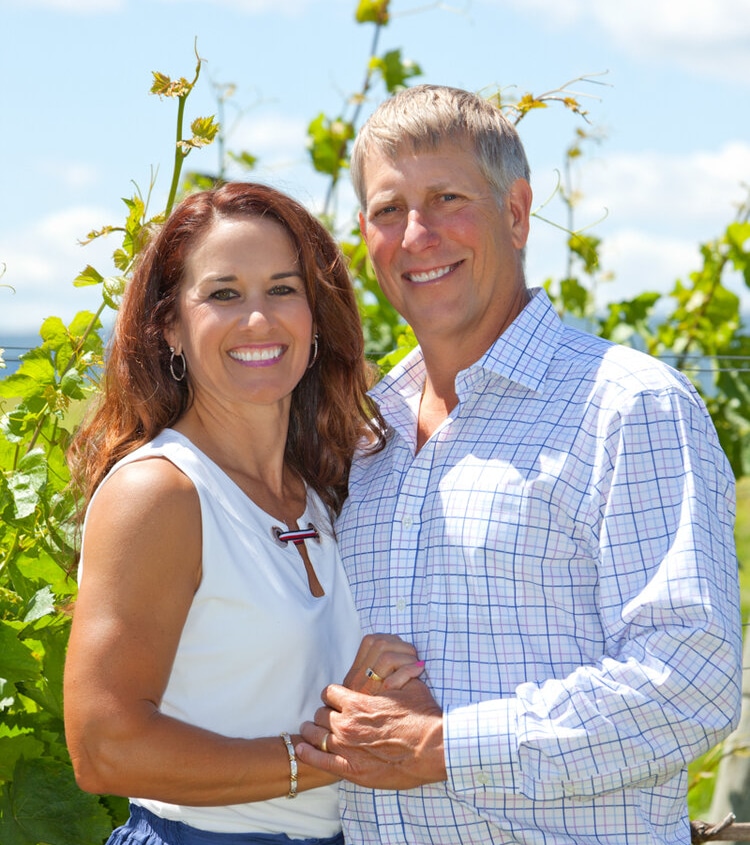
Daneen and Chuck Zaleski of Fero Vineyards
We enjoyed a great conversation with the Zaleskis about how Fero Vineyards got started and how it’s progressed and grown throughout the years.
PA Eats: Take us back to the beginning. How did Fero Vineyards become a reality?
Chuck Zaleski: Daneen and I both had a passion for wine. I’m a physician by trade, and was a home winemaker on the side. Daneen’s parents had some old farmland in Lewisburg that’s been in the family since 1812; it’s really good farmland on a south-facing slope, ideal for grape-growing. We started toying with the idea of planting a vineyard in the early 2000s.
About 8 years before we actually incorporated, we did the soil analysis and soil amendments, then planted a trial vineyard with root stocks and different varieties to see what would grow best here.
What was the family farmland being used for at the time? And how did your parents respond to the idea of planting a vineyard there?
Daneen Zaleski: The land was leased mostly used for farming corn and soybeans. My parents live in the farmhouse but never actually farmed it, though previous generations did. It took a little while to convince them. Maybe it helped that we said we’d name it Fero, which is their last name. Even I was skeptical at first; my husband asked me and I was like, ”Maybe you’re a little nuts here.”
Chuck: I get the wild ideas and she’s more risk-averse. We balance each other out!
How did you learn more about making wine on a commercial scale?
Chuck: We were touring grape-growing places all over the world, like Europe, California, New York and Virginia. I had a good friend who was a winemaker in the Finger Lakes, and I’d go visit him a lot and he mentored me. We’d talk about wine and grapes from dawn to dusk and never stop!
Daneen: We also attended a lot of classes and seminars, and functions held through the PA Wine Association. There was a state viticulturist at the time who ran a lot of classes.
What grapes did you start out growing, and why did you choose those specific varieties?
Chuck: I looked at what other folks are growing in Southeastern and Central Pennsylvania, Northern Virginia and the Finger Lakes. In the test plot, we planted those grapes plus a few other ones and monitored their development. We found out which ripened well and consistently, then made wine out of those grapes.
For the whites, Grüner Veltliner grew well and I had an affinity for that grape from some time I’d spent in Germany. Riesling grew really well, and so did Pinot Grigio. Chardonnay did okay. For the reds, Pinot Noir seemed to be consistently great. We also did well with Lemberger, and Saperavi. That’s a unique grape that’s very dark red, and we wanted something that hit the deep, dark red market, because we don’t have the warmth to grow Merlot or Cabernet Sauvignon as consistently.
What were the first few harvests and vintages like?
Chuck: The first year we planted there was a terrible drought, but the vines did great. That’s been a consistent surprise every year. We were getting crops by the second year. In 2012, we started to sell our wine, just Daneen and I, in the farmers markets and wine festival trail. Then in 2018, we built the tasting room on site at the vineyard.
Can you tell us about the Fero Vineyards tasting room?
Daneen: For the design, we drew inspiration from the tasting rooms we’d visited and liked. When you walk in and when you’re doing your tasting, you can see vines from the window. That was intentional. The tasting room is about 600-square feet with a nice bar made from wood we pulled from an old log cabin on the farm.
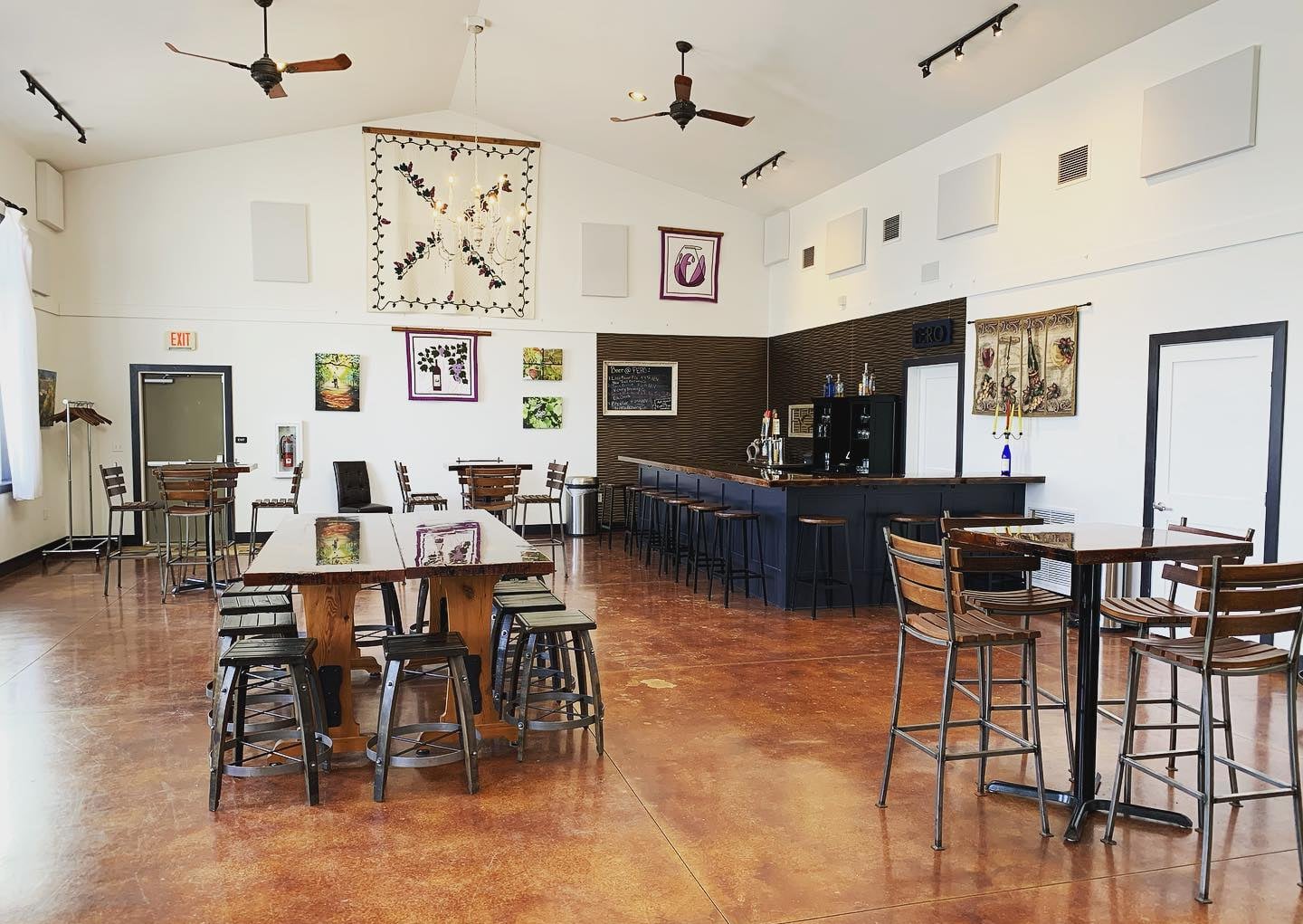
We also have a taproom, which is a different room in the same building. It holds about 100 people, and we serve wine and Pennsylvania beers. Our wine flights can be enjoyed outside, in the taproom, wherever you want.
What are your roles in the business?
Chuck: I still work a regular job three days a week, and then I do the winery some of those evenings and every other day. I’m the winemaker and vineyard participant. Nick, our son, manages the vineyard. Daneen works here all the time as the general manager; she does the books and the hiring. Our daughter-in-law runs the weddings and all the events.
What is Fero Vineyards’ winemaking philosophy?
Chuck: We try to make the best wine from the grapes we grow, and want them to reflect the land and the community. We let the grapes determine what happens along the way. The weather dictates what’s ripening well and where the best wine is going to come from. It’s relatively classic winemaking. I don’t do a lot of chemical additions, just traditional fermentations, very careful selection of temperature, clean grapes and monitoring things closely.
Over time, we’ve learned more about how our fruit grows, when to harvest and what wines you can make from them. For instance, Pinot Noir is extremely versatile, and we can use it to make a red, a dry rosé and it makes the base of our sparkling wine. Each variety has its own little niche. The Lemberger likes a certain oak, and the Saperavi likes less oak.
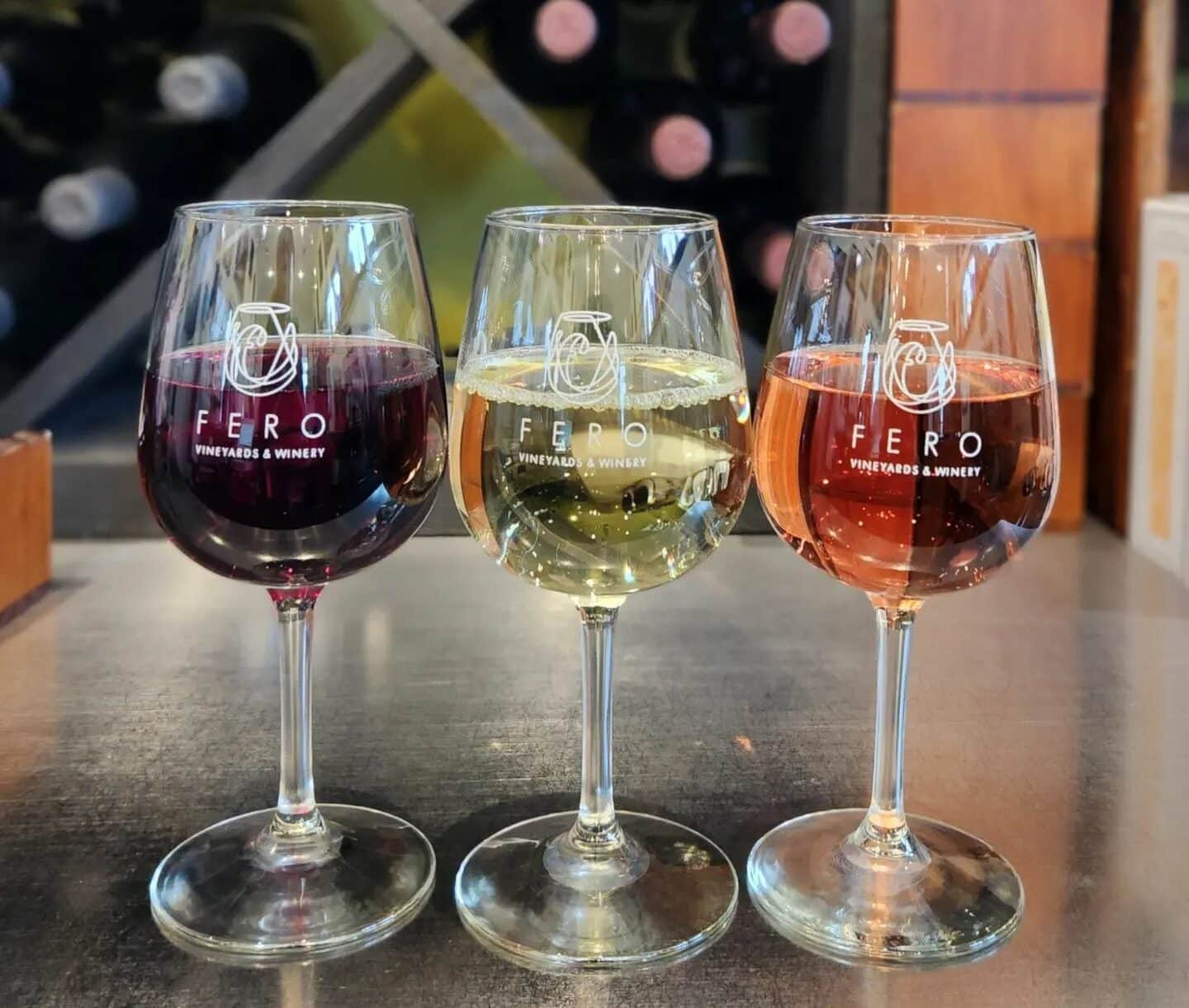
Have you had to change or adjust things along the way?
Chuck: Initially, we were focused on dry wines. But we realized we had to make some sweet wines, and now sweet wines make up 40-45% of our sales.
Also, we’ve had to invest in more mechanical equipment to run the vineyard. We have a harvester and we mow under and in the rows with special equipment. Other than a little leaf pulling and winter pruning, we’ve diminished the hand labor a lot. We made this change because it’s hard to hire. The labor issue is everywhere, and every winemaker with a vineyard has the same problems.
What are the pros and cons of moving to a more mechanized vineyard?
Chuck: It’s actually been really helpful, because we can harvest exactly when we want. Most of the European-made machines are very efficient, and though the process is not as gentle as hand-picking, they’re relatively gentle.
Daneen: Before, we were leaving tons of fruit on the vines before because we couldn’t get to it when we were hand-picking, because we didn’t have the staff, or time, or because of the weather.
Chuck: Now, we’re able to pick all of our fruit and sell excess juice to wineries. That’s been very helpful. The margins in this business are so slim, if you want to make it you have to be efficient, cost-effective and branch out into other parts of the business. That’s the only way to make it work in our area.
You’ve been part of the Pennsylvania wine industry for the past 12 years. What are your observations on the industry, and how would you like to see it evolve?
Chuck: The two model states I look at comparatively are New York and Virginia, which have both had a more rapid emergence of their wine industries over the past few decades. Pennsylvania should be able to make as good, if not better, wine than those other states. There’s no reason it can’t, and it will. Penn State is becoming an academic location for wine similar to Cornell and Virginia Tech. The oenology and viticulture people there have been wonderful. I think that’s going to be a major factor in the future.
We want to raise the reputation of Pennsylvania-grown grapes and wine. It’s been done before in these other states and we can do it here. It’s just a matter of time.
For more information about Fero Vineyards, visit its website and follow along on Instagram and Facebook. Note that you can only purchase Fero Vineyards’ wines on site at its tasting room; it does not distribute to other retailers, restaurants or sell online.
Visit Fero Vineyards at 965 JPM Rd. in Lewisburg, PA; phone: (570) 568-0846.
The PA Vines & Wines series was created in collaboration with the Pennsylvania Wine Association with Round 8, Act 39 grant funding from the Pennsylvania Liquor Control Board (PLCB).
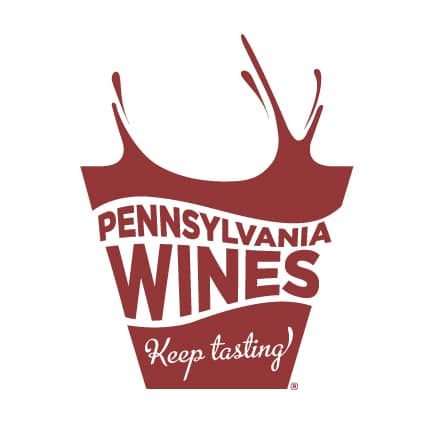
The Pennsylvania Winery Association (PWA) is a trade association that markets and advocates for the limited licensed wineries in Pennsylvania.
- Photos: Fero Vineyards
